Museums Change Lives Awards 2024
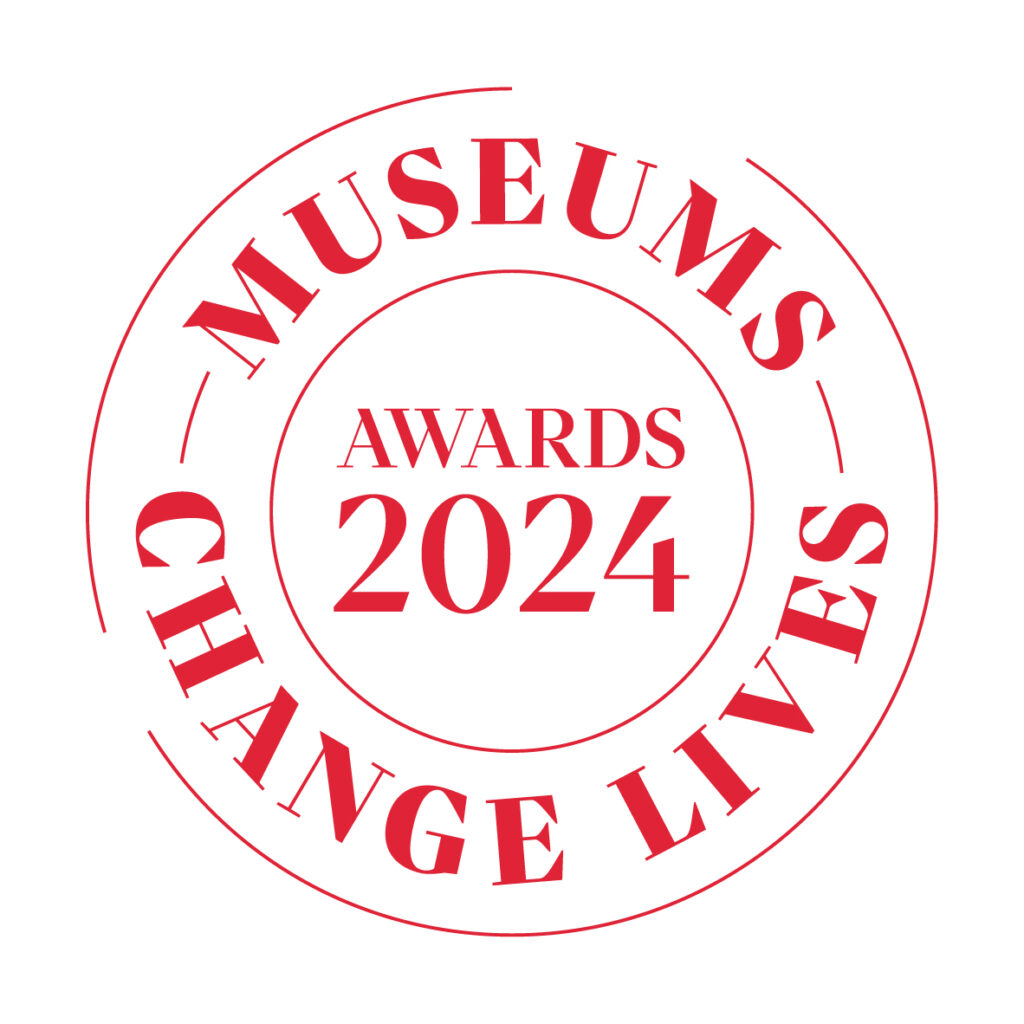
Meet the winners and find out more about their work
The Museums Change Lives Awards recognise and celebrate outstanding work by UK museums delivering social impact. The awards promote best practice from museums and individuals that supports communities and engages with contemporary issues.
We’re delighted to announce the winning people and projects across our four 2024 awards. The winners of each category were announced at a ceremony on 12 November at the MA’s Conference 2024: The Joy of Museums.
Each winner receives £500, a trophy, a framed certificate, and substantial coverage in a special report in Museums Journal and via the MA’s communications channels.
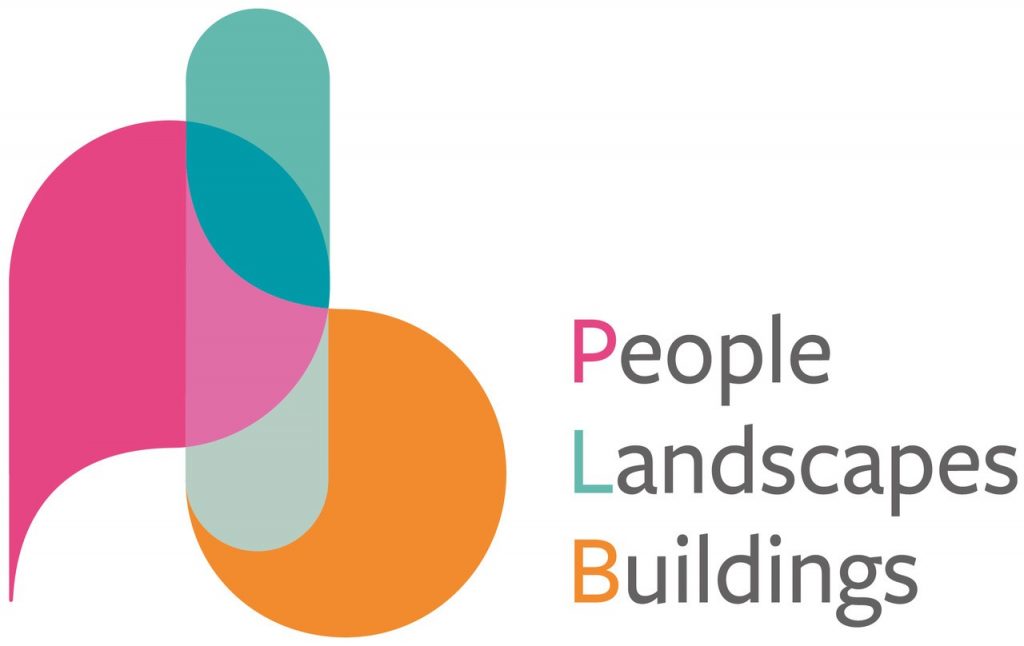
Awards sponsor: PLB
Best Museums Change Lives Project
WINNER | Manchester Art Gallery – Families of the World
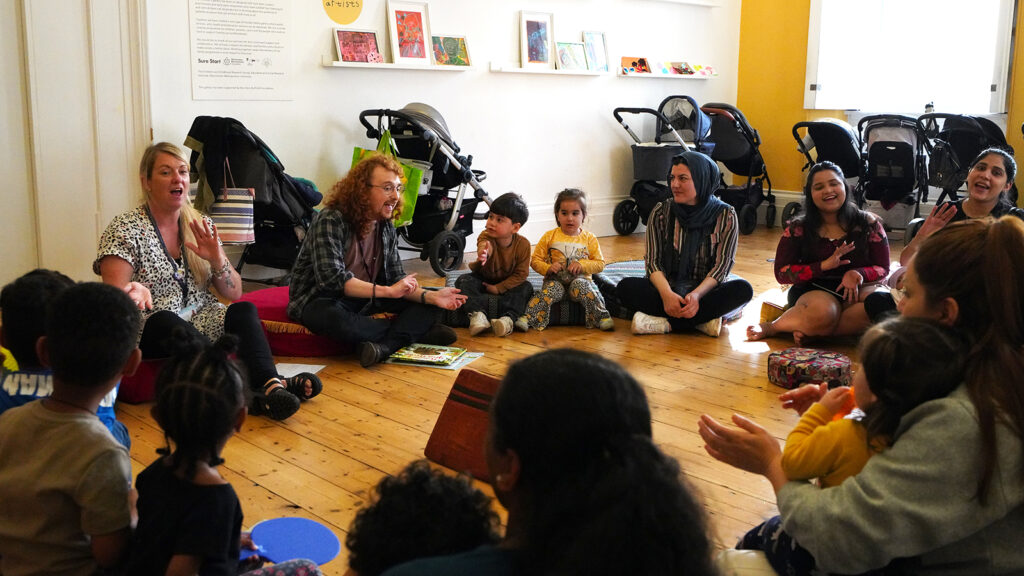
Families of the World (FotW) is a gallery initiative, with a multi-agency approach, to provide creative activities for families from Afghanistan, Pakistan, Iraq, Syria, Eritrea and Sudan. The families staying in a local hotel, particularly mothers and young children, participate in weekly art-based and artist-led sessions at the gallery, concluding with a meal shared together.
The initiative was born out of the Afghan crisis of 2021, when the gallery responded in 48 hours to an approach by the council and its Sure Start provision to provide recreation for families who had suddenly arrived in the city. Since then, the need has increased with families fleeing other conflict zones. Following a trial period, the gallery has gained funding from the Oglesby Trust to develop the activities with partners, bring other cultural venues on board and to develop an app and toolkit for participation.
FotW sessions run every Thursday and consistently attract 35 to 45 family members, who say that the visit to the art gallery is their favourite part of the week, helping them to feel confident and adjust to a new city. Many women involved have also contributed to the gallery by sharing recipes for Syrian, Kurdish and Afghan meals, which are now served in the venue cafe. Several session members are now volunteering in the creative families summer programme.
Birmingham Museums Trust – Dynamic Collections
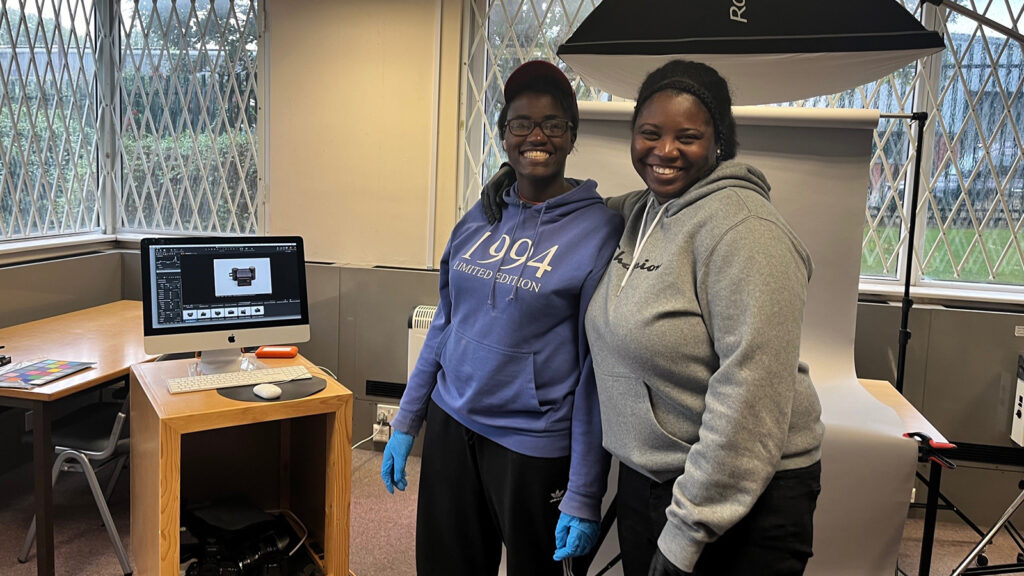
Dynamic Collections champions Birmingham Museum Trust’s aim to be the first large museum service whose visitor demographic reflects the community it serves. The project champions this by moving from unsustainable bolt-on engagement to an embedded and scalable approach to mass participation and meaningful engagement with the trust’s core asset, its collection.
Beginning in 2022, by 2032 it will deliver a complete, publicly accessible inventory of the collection that the trust’s communities can use. It does so by testing and embedding creative approaches to participation in collections care and use, delivered by a cross-disciplinary team of collections, engagement and digital staff and drawing on expert external advice.
The project supports partner organisations to identify ways of working with the collection, centred at the Museum Collection Centre, supporting place-making and community in Nechells, one of the 10 most deprived wards in Birmingham. Since its launch in 2022, the project has engaged over 1,800 volunteers in the transcription of over 46,000 object records and delivered over 330 instances of participation on-site, from over 30 partner organisations, auditing over 5,000 objects.
Salisbury Museum – Fashioning Our World: Unpicking the past to thread together the future
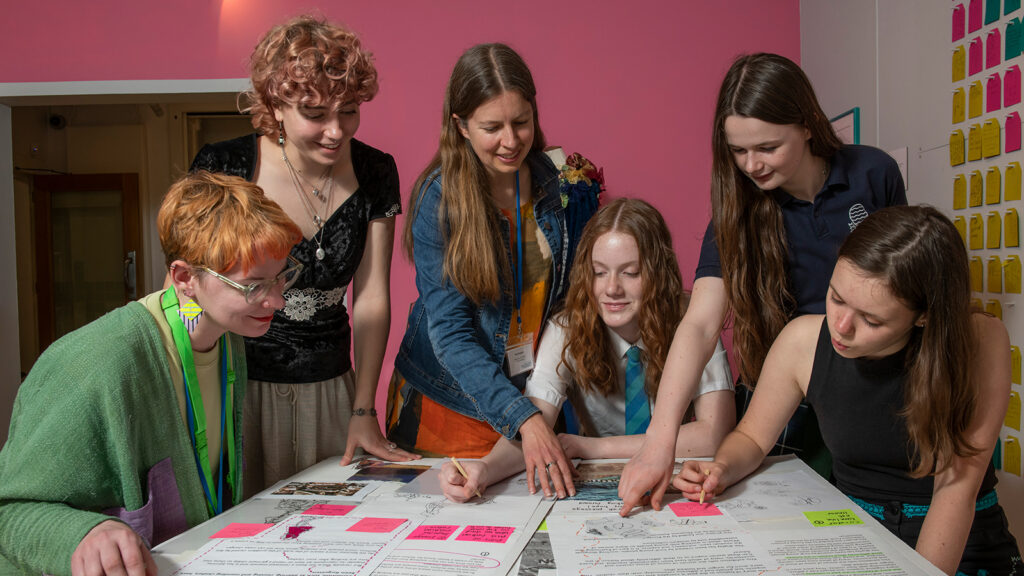
Fashioning Our World worked with young people (aged 11-25) to discover the hidden stories of sustainability told by clothes and accessories in the past. The young people explored items from the Salisbury Museum fashion collection and learnt practical skills to repair and repurpose items in their own wardrobe.
The young people shared these powerful stories with the community, aiming to change people’s attitudes to fashion and help fight the climate crisis. They organised events including a sustainable fashion show, for which they made their own outfits by repurposing and using recycled materials. They also co-curated an exhibition at Salisbury Museum, attracting 6,851 visitors. It told the stories of clothes and accessories that have been repurposed, mended and loved in the past, and asked: ‘Can this inspire us to think differently about fashion in the future?’
The project created a model that can be used by other museums and heritage organisations with fashion collections and worked in partnership with Dorset Museum to trial this. The initiative trained 44 volunteers and a further nine from Salisbury Museum and four from Dorset Museum have researched the fashion collections, helped with events, workshops and the exhibition, and passed on skills to young people.
Best Small Museum Project
WINNER | Hastings Museum & Art Gallery – Illuminating Invisible Histories: Flavours Without Borders
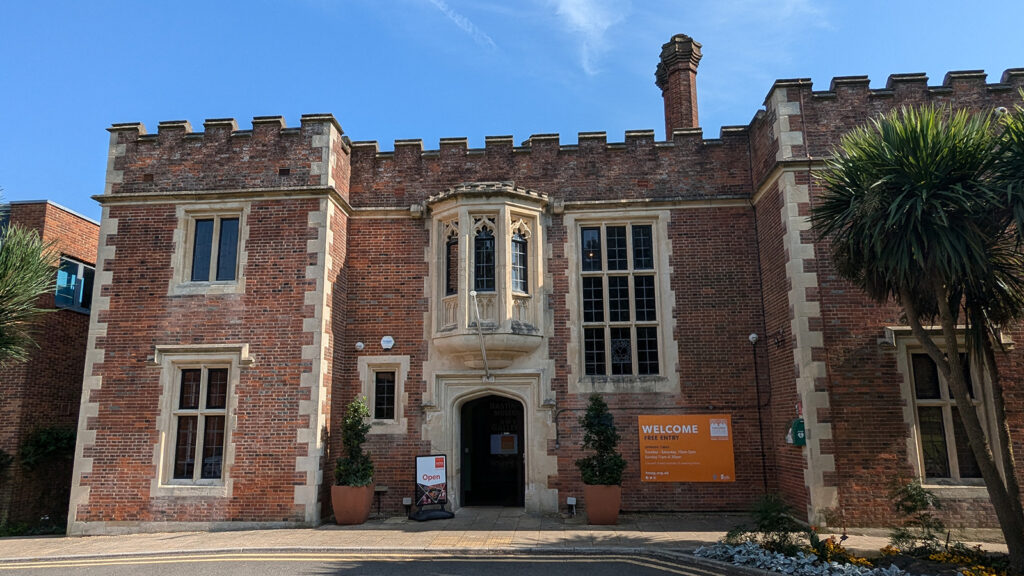
In partnership with the Refugee Buddy Project, Hastings Museum & Art Gallery is working on a three-year project, Illuminating Invisible Histories: Flavours Without Borders, to bring communities together and co-create meaningful programming that reflects the diverse heritage and histories in Hastings. The project sought to raise awareness of refugee experiences in Hastings, increase co-collaboration, and co-produce programming with community organisations to broaden the museum’s offering and draw in new audiences.
Two dinner parties took place at the museum, where 20 participants brought homemade food and personal objects. Through food and facilitated conversation, an intergenerational and multinational community shared their untold stories of their culture and life in Hastings. Their insights were captured on film for viewing during Refugee Week. In parallel to the film screening, the guests’ objects were displayed at the museum along with testimony about their journeys as told through their personal objects.
The project will continue to develop through 2024/25 with two 20-day placements by members of the community, working with museum staff on reinterpreting the gallery’s permanent display about Hastings life. New objects will be introduced, some of which may come from the dinner parties, and there will also be tours and a panel discussion.
Shipley Art Gallery, Tyne & Wear Archives & Museums – Recovery through Ceramics
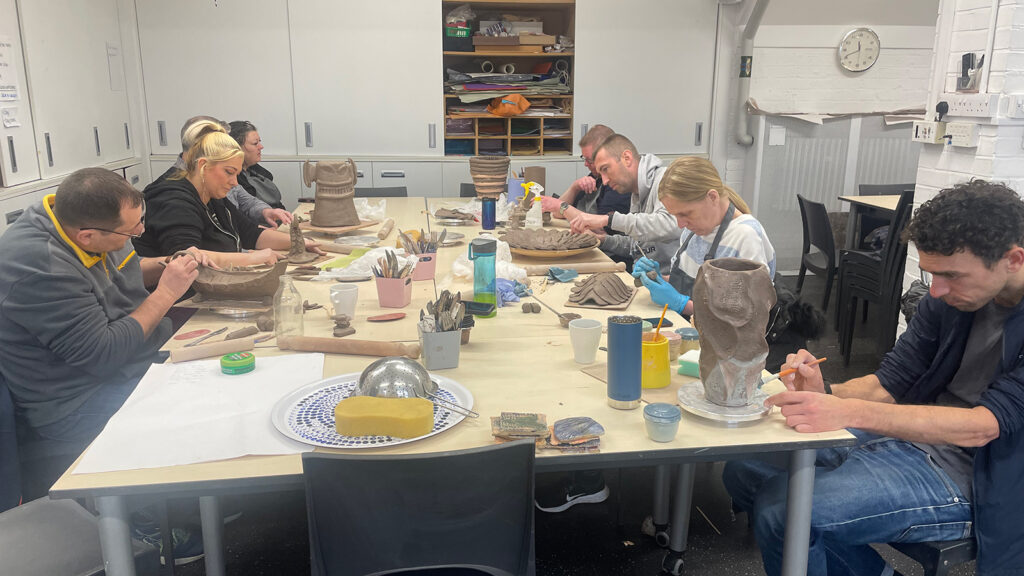
Recovery through Ceramics works with people in recovery to develop new creative and practical skills, many of whom had not been to the Shipley before or were not regular visitors to cultural centres. Funded through an NHS Mental Health Transformation grant and in partnership with lived experience recovery organisation Recovery Connections and Bensham Grove Pottery, the initiative takes place weekly, inspired by the gallery’s ceramics collection.
Participants work with ceramicists to learn different ceramic techniques and create their own ceramic pieces, exploring the Shipley’s ceramic collection for inspiration for their own work. Through activities designed to give them ownership over their programme, participants co-curated a two-week exhibition of their work at the Shipley in June 2024, and co-curated a display of work from the gallery’s ceramic collection in its new community cabinet.
The programme increases confidence and wellbeing while promoting peer support and resilience. Participants also develop new personal and professional skills through practical research and interpretation activities, which can help towards future employment. Some participants have now signed up to become museum volunteers and lived experience mentors for future participants in the project, and at least one participant has signed up to start a ceramics course at Bensham Grove Pottery.
Museum of Free Derry – Conflict & Legacy Interpretive Network (CLIN)
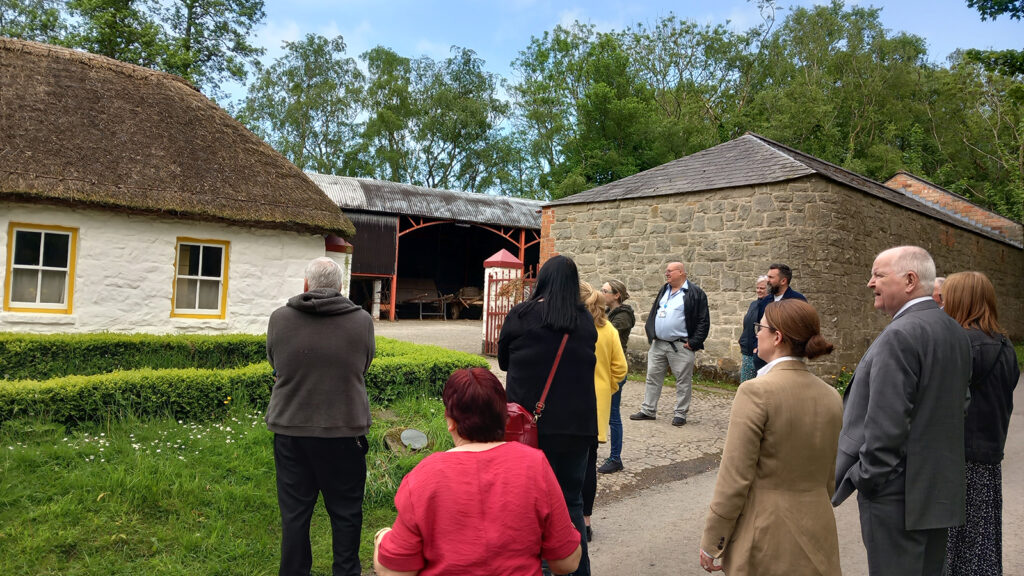
The Conflict & Legacy Interpretive Network (CLIN) is a project initiated by Museum of Free Derry, National Museums NI and Healing Through Remembering, creating a network of museums and heritage organisations specifically covering conflict and legacy issues related to the conflict in or about Ireland.
As the debate around the historical legacy of the conflict continues, museums and heritage organisations need to consider their role and purpose. To date the project has brought together 19 different organisations from across the political divide and created a space where these organisations, from vastly different and sometimes completely opposing backgrounds, can use their collections and venues to work together with each other’s audiences to help inform and educate around the legacy debate.
The first important outcome was the creation of the network itself, which has brought together organisations of all sizes and all shades of opinion. A second outcome has been the employment of a staff member and the creation of a digital presence for the network. Via its website, visitors can learn about the network members and see a digital exhibition of their work. The network is now also working towards a physical exhibition.
Championing Social Justice Award
WINNER | Perth Museum, Culture Perth & Kinross – Unicorn
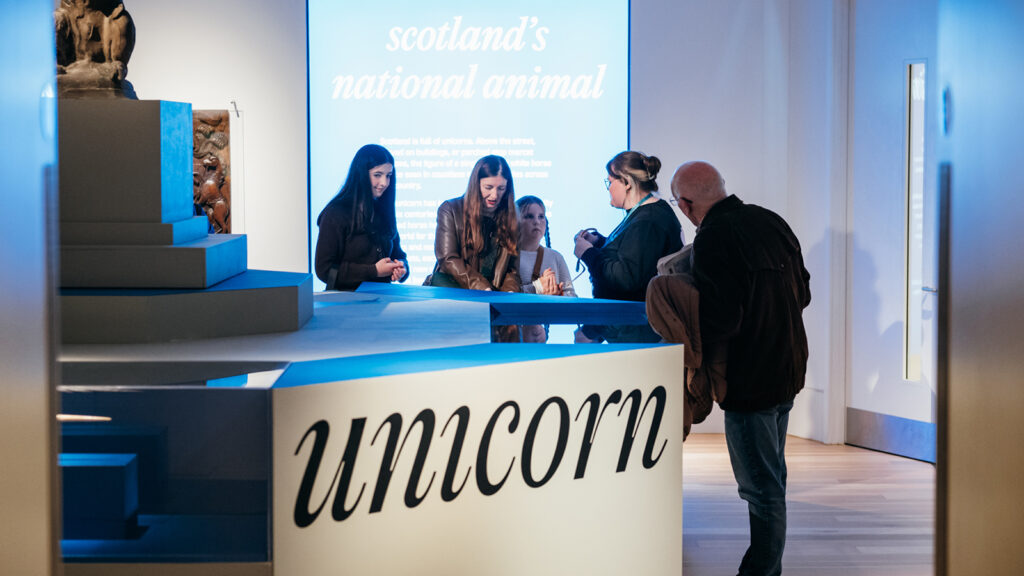
When the new Perth Museum opened in March 2024, the team chose to centre local LGBTQ+ stories and voices in its first exhibition, Unicorn. As part of an exploration of Scotland’s national animal, the exhibition focuses on the unicorn as a LGBTQ+ symbol. Working in collaboration with community groups, the exhibition includes 5 newly-commissioned artworks by queer Scottish artists, local objects and oral histories, a queer-friendly family space, and a rich engagement programme.
Unicorn has not only increased representation of LGBTQ+ communities in the museum’s displays but also in its collections by accessioning objects, artworks and oral histories generated through the exhibition. Moreover, the museum has embedded new staff training to ensure it continues to be a welcoming and empowering place for queer workers and visitors alike.
Unicorn has been a critical and commercial success, and has created a safe, relevant and celebratory space for LGBTQ+ people in Perthshire. The exhibition attracted 10,000 visitors and generated £50,000 in ticket sales in the first four months, and enjoyed a five-star review from the Guardian. Through Unicorn, Perth Museum has challenged the assumption that discursive, sector-leading work can only happen in big museums and cities.
Walker Art Gallery, National Museums Liverpool – Carving Out Truths: Sculpture and Slavery
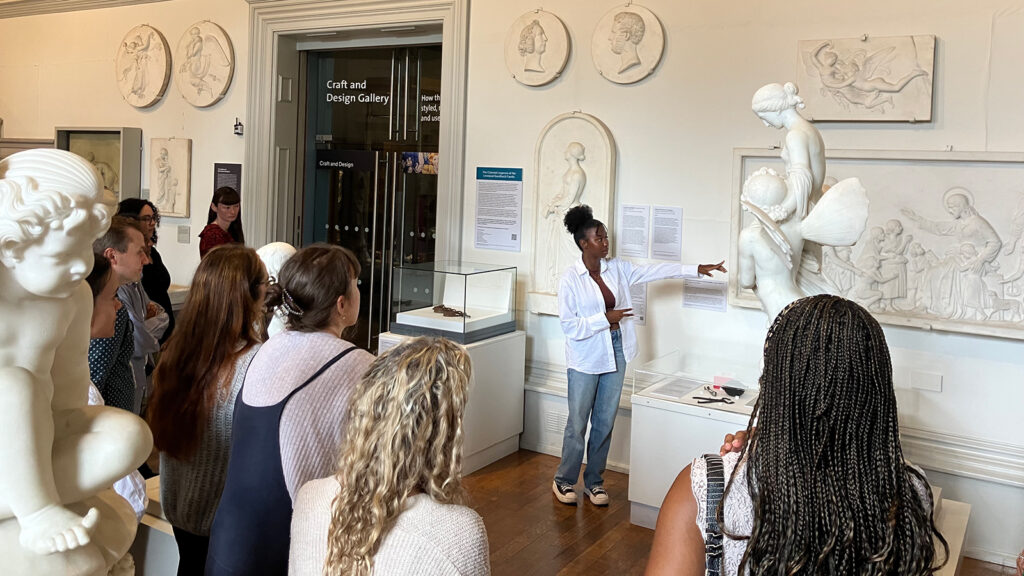
Carving Out Truths: Sculpture and Slavery researched and shared histories related to slavery, colonialism and empire linked to the Walker Art Gallery’s neoclassical sculpture collection. This co-curated project worked with young people from Liverpool’s Black and Global Ethnic Majority communities, who are typically underrepresented and misrepresented within museums.
Neoclassical sculpture emerged in the early 18th century alongside the rapidly expanding British Empire. Public monuments depicting Britain’s so-called ‘heroes’ were erected across the country, paid for by local merchants whose wealth was made from the trade of enslaved African people and the goods they produced. The histories of these sculptures were researched collaboratively through workshops and talks throughout Liverpool, supported by artists, curators, educators, historians and activists.
Through the sharing of knowledge and lived experience, this project produced a series of interventions drawing attention to individuals and stories that were previously excluded, creating a space for learning, dialogue and recovery. Carving Out Truths involved 35 collaborators and has been seen by more than 60,000 people, challenging established narratives in art history that continue to uphold silenced racial biases in the wake of British slavery.
Ferens Art Gallery, Hull Culture & Leisure – Jason Wilsher-Mills: Are We There Yet?
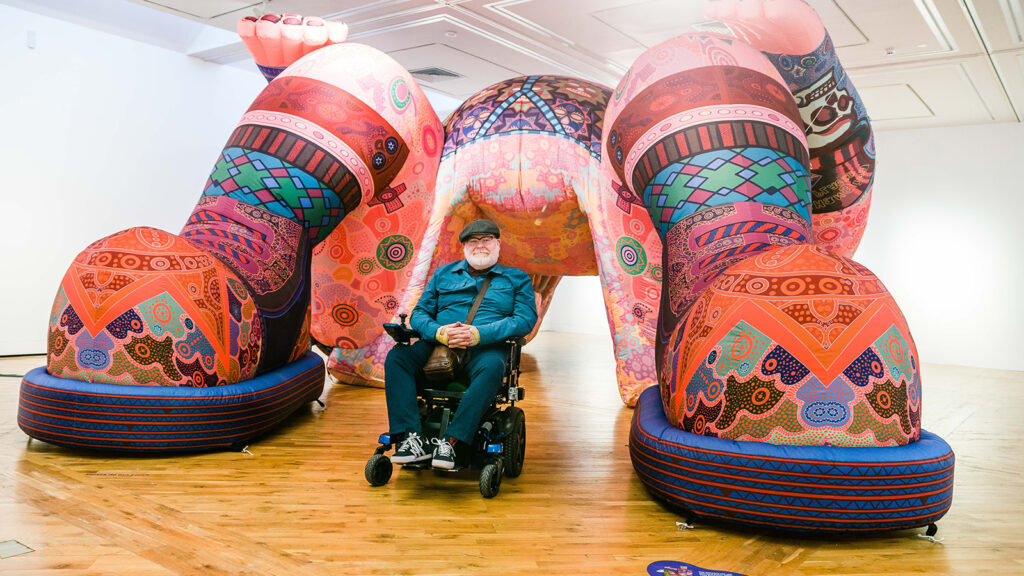
Are We There Yet? was a high-impact exhibition with access at its heart, exploring artist Jason Wilsher-Mills’ life as a working class disabled person, stories of disabled people and carers he has worked with, and his ongoing connection with Hull. A key work in the exhibition was “The Changing Places Argonaut”, a mega-scale inflatable artwork highlighting the campaign for fully accessible toilets.
The gallery worked with disabled and neurodiverse artists to deliver the exhibition’s public programme, and developed inclusive interpretation and programming to engage with disabled communities, low-income families and non-art audiences. National and local organisations including Tourettes Hero and Sight Support helped develop interpretation and delivered engagement activities.
The gallery commissioned and acquired a new work for its collection, which took inspiration from Jason’s childhood connections to East Yorkshire and the Pre-historic Roos Carr Figures in its collection. The exhibition saw 51,623 visitors and 298 participants in targeted SEND activity, and the project has enabled the gallery to develop approaches and partnerships that it will embed in future programming – including implementing accessible interpretation across the museum service.
Radical Changemaker Award
WINNER | Marian Gwyn
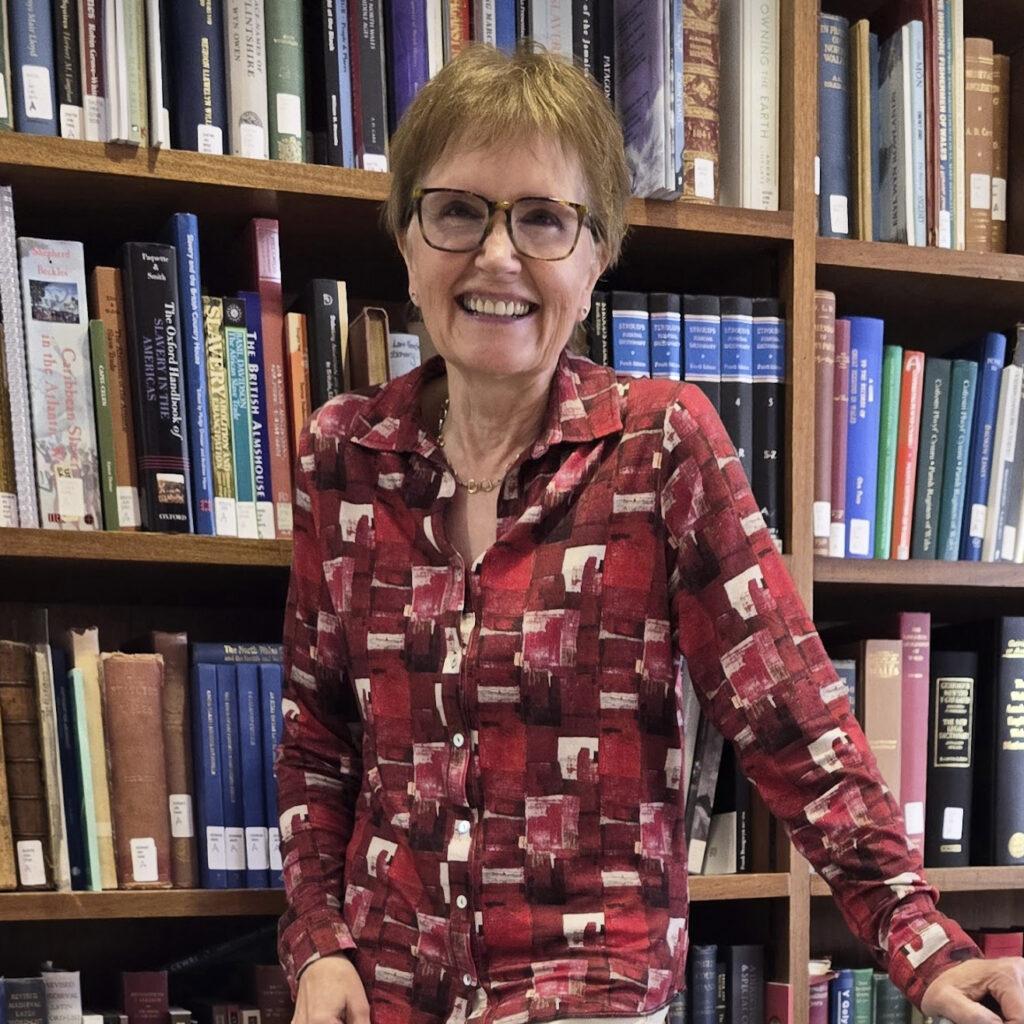
Marian Gwyn has had a 30-year career in the museum sector, where she has focused on diversifying heritage practices, including producing the first exhibition on slavery at any National Trust property in 2007. More recently, with Welsh Government funding, she devised and led a transformative initiative to diversify and decolonise local museums in Wales.
Over three years, she assembled a diverse team and collaborated with 40 museums, conducting collections reviews, facilitating workshops, and providing guidance on understanding the complex connections between their collections, empire and diversity. She brought together museum staff with ethnic minority communities, ensuring their often-silenced stories are celebrated and commemorated through co-created activities and reinterpretation work. Additionally, in partnership with GEM, she led a three-year programme to transform museum education in Wales.
The project’s impact has been significant, sparking tangible change in museums across Wales. By fostering a deeper understanding of their collections and facilitating meaningful community engagement, this work has enabled museums to become more inclusive, relevant and sustainable for the future.
Phillippa Heath, Museum of English Rural Life, University of Reading
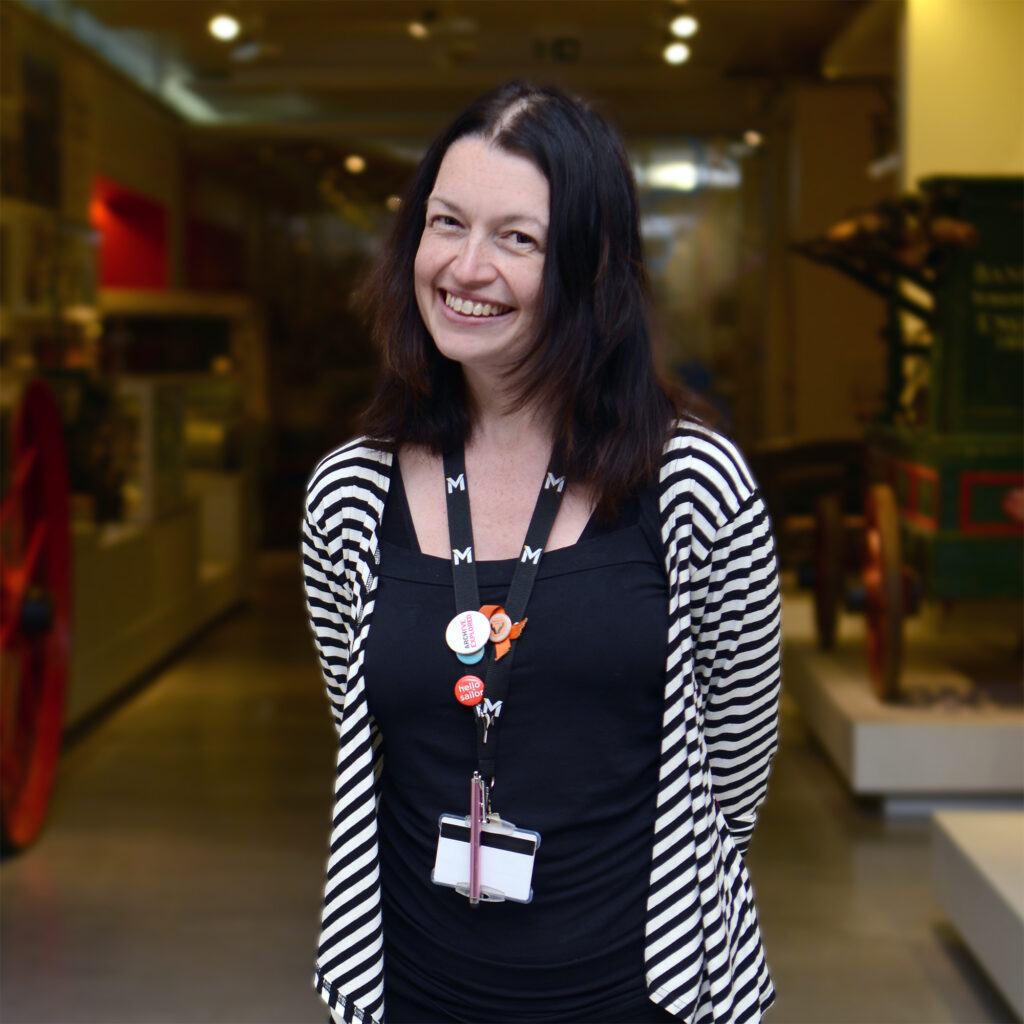
Phillippa Heath has transformed the Museum of English Rural Life’s (MERL) engagement with communities. Fostering significant relationships across Reading and delivering key partnership projects, over the last decade she has built her network of community organisations almost from scratch following joining the MERL in 2014. During the last year alone, 1,280 individuals in the community have participated in engagement activities.
Her work this year includes Together Stronger, partnering with younger people with dementia, and a programme of support and creative activities for young carers. Also this year, Reading Mencap co-created the exhibition Hear Our Voice, presenting their views and experiences of the countryside, and for Where do we go from here?, MERL partnered with Rank and File Theatre whose members include refugees and asylum seekers. This project supported a successful application for MERL to become a Museum of Sanctuary.
Her work with the Gypsy Roma Traveller community began with outreach sessions for a school with significant GRT representation, which led to the MERL working with the Romany and Traveller Community History Group, hosting an event for Gypsy, Roma and Traveller History Month. Phillippa works hard to meet the individual needs of community groups, and ensures they are always treated with dignity and respect.
Maria Hussain, freelancer (researcher), University of Leeds
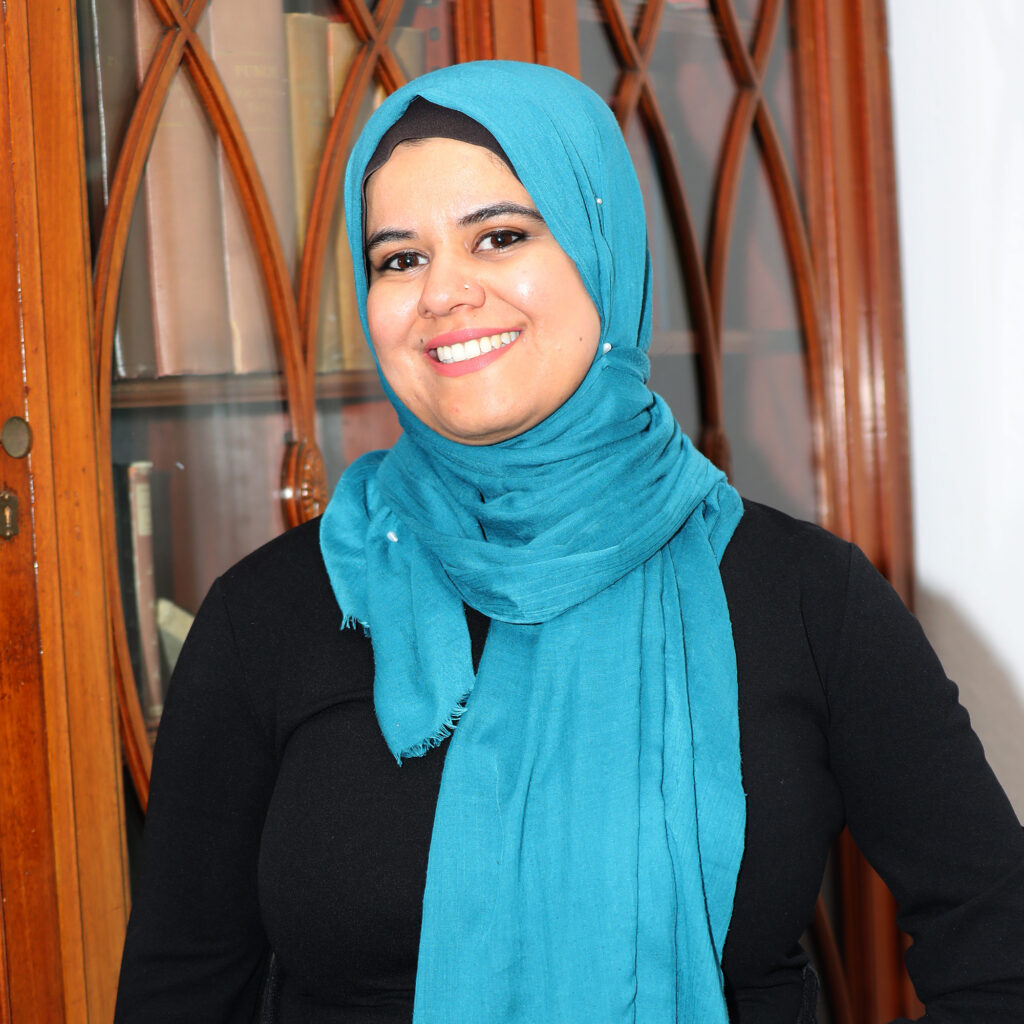
Incidents of Islamophobia have significantly increased over recent years (Tell MAMA, 2024), compounded with the rise of far-right, racist attacks on communities and places of worship which have shaken the UK – especially the north of England. Maria Hussain led Muslims in the North, a research-led collaborative exhibition with Adam Jaffer at Leeds Museums & Galleries and Shames Maskeen at Leeds Trinity University.
Her research explores and investigates the value of cultural diversity in the workplace and civic spaces. The exhibition showcases the notable contemporary contributions of trailblazing British Muslims through their untold stories across four areas: commerce, healthcare, law and research. It enables the public to challenge negative stereotyping and recognise the significant and diverse contribution(s) of Muslims to the region and nation. The exhibition also nurtures a sense of belonging for Muslim communities both across the region and nationally.
Between March and October 2024, over 130,000 people have visited Leeds City Museum. Feedback has shown that a large number of visitors from marginalised groups have visited the museum specifically to see the exhibition, as they felt it was relevant to them. Going forward, follow-on funding from Leeds Horizon Institute is being finalised to scale up and iterate the exhibition so it can be featured during Bradford 2025, its year as UK City of Culture.